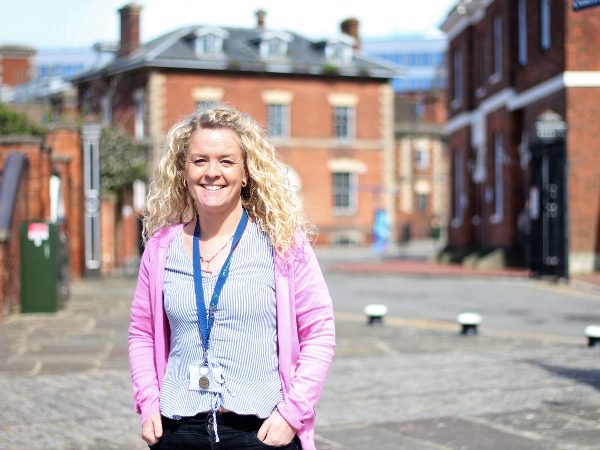How to Tackle CSE
19 October 2017
“Last year I completed my Degree in Youth Work with my dissertation focusing on the best ways to challenge Child Sexual Exploitation. This in-depth piece of research and work has left me with strong views on the best way to reduce CSE. So when I had the opportunity to go along with our CEO Tracy Clark, to Gloucestershire’s Safeguarding Children’s Board annual Child Sexual Exploitation (CSE) Conference last week, I was incredibly interested to hear how Gloucestershire was moving forward. Whilst the conference had a variety of quality speakers and informative presentations, we came away frustrated.
“As part of my Youth Work degree I carried out an independent research study into the current thoughts on CSE and its an area I am passionate about. I feel very strongly that both the Youth Work profession and the voluntary sector in which YG sits can make a real positive difference to the way in which CSE is tackled.
“What struck me during the conference was that there was no representation at all from the voluntary sector. Nor were they referred to very often. Which in view of the research I have carried out is at odds with the suggested best ways to approach the issue.
“There is a wealth of evidence (1) suggesting that the most effective way of engaging with young people, who are at risk or already involved in CSE, is to take an informal person centred approach, gaining trust and building a relationship with a young person. Which is the basis of youth work. It is suggested (2) that interventions that attempt to rescue, act only at an individual level and do not take into account underpinning or constraining factors that have led to the young person being in that situation. This concerns me as the conference largely focused on this approach.
“Research literature continually makes references to the skills needed to effectively work with young people at risk of CSE and the way this work should look and be underpinned. The most effective strategies all describe the practice of youth work. So as a youth worker and from a youth work organisation it was frustrating to hear Gloucestershire championing a ‘rescue based’ based approach, despite research showing us its limitations.
“It is estimated that 16,500 children and young people are at risk of CSE across the country and the figures are continuing to rise. Recent research carried out by the NSPCC (3) suggests an average of more than 10,000 new victims of contact sexual abuse in the UK every year. Having said that, it is suggested that quantifying the problem of CSE is extremely difficult. Due to its coercive and manipulative nature, victims often don’t recognise themselves as victims or feel unable to reach out for support and speak up when reporting” and prosecuting the crimes. The result of which means sadly and worryingly the true picture of CSE is unknown.
“Its suggested (4) that government spending in relation to CSE has predominately been spent on the establishment and maintenance of Local Safeguarding Children’s Boards which pick up CSE at a stage once it has been identified. However, research (5) is shows that preventative measures by on the ground workers could pick up concerns sooner and prevent the CSE starting in the first place. I question then, why money is not invested in the work at an earlier stage.
“There are a wide range of specialist, voluntary and community agencies and groups who are well placed to identify children who are at risk, or are experiencing abuse. The research (6) and our own experience here at YG tells us that the voluntary sector is best placed to provide the intensive long term work required to build relationships with a young person, help them recognise their own exploitation, escape and recover.
“At YG we are we are working to help funding commissioners understand what is possible with a change in approach. We want them to see the research, recognise the recommendations it makes and consider the key role the voluntary sector should be playing in preventing CSE.
“Together Tracy and I are seeking out opportunities to explore this matter with decision makers. I will also be attending the NSPCC National CSE Conference in London next month, armed and ready to network with my research in hand. YG believe in the difference that not only our organisation can make but also others within the sector. We will therefore, continue to wave the flag and bang the drum for a more proactive solution to CSE
Watch this space…..”
1-(Jay, 2014, Holger-Ambrose et al. 2013, Hayes and Unwin, 2016, Lebloch and King, 2006, Puffett, 2016 and Dodsworth, 2014)
2-Melrose (2013)
3- NSPCC (Saied-Tessier, 2014)
4-(Debates in the House of Lords, 2016)
5-(Barnardo’s, 2014, CEOP, 2013 and Gov.UK, 2015)
6- Carrie (2011 in Pemberton, 2011)
You may also like...
Redesigning Graphic House: Creating the safe spaces young people deserve

Meet Jamie – Learning, growing, and giving back through Youth Work

From Probable Mental Illness to Wellness

Young Gloucestershire’s ED and I journey

